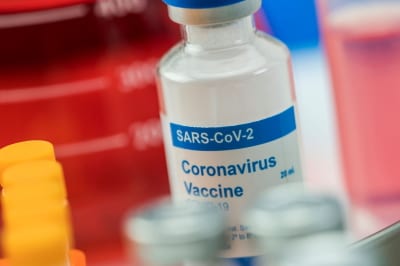Following the Covid-19 pandemic, many companies stopped all business travel while some allowed only essential travel. Now, as vaccination programmes start to roll out around the world, Oz Desai, GM Corporate Traveller, believes things could change; “As the vaccine becomes more available worldwide, there are positive signs that corporate travel could return to some semblance of ‘normality’.”
IATA, the International Air Transport Association, is developing a digital health passport for travellers. The IATA Travel Pass will let travellers share their vaccination status and Covid-19 test results with airlines and border authorities via a contactless passport app. It is then likely that those who have been vaccinated will have fewer barriers to entry when travelling internationally, while those who are unvaccinated may have to undergo a Covid-19 test or quarantine period.
The IATA Travel Pass will let travellers share their vaccination status and Covid-19 test results with airlines and border authorities via a contactless passport app.
A globally recognised and understood digital health passport will remove some of the challenges and confusion around travelling to different countries and what their requirements are. However, Desai adds that this doesn’t mean corporate travel will be ‘the same’ as before.
READ: Could this be the ticket to reopening events?
He explains that a “hybrid model where virtual and face-to-face meetings collide” will probably be how most companies do business. People are now used to working remotely and connecting online, and this easy and efficient way of doing business will continue. But the need for meeting face-to-face, and its value, is also more widely acknowledged. Therefore, the future workplace will be a blended workplace where remote work, collaboration days, and face-to-face meetings all have a place, which will provide increased flexibility.
The future workplace will be a blended workplace where remote work, collaboration days, and face-to-face meetings all have a place.

Health and safety requirements will continue to be a top priority for travellers. Desai says, “South Africa’s travel industry has gone above and beyond implementing the recommended safety protocols as per the World Health Organization. This has helped to alleviate concerns and travel anxiety over the past few months as business travellers started to resume their travels. We can expect that these new and stringent health protocols will remain in place in the future.”
Relating to this, ‘touchless travel’ will probably become the new standard. Desai explains, “Many traveller suppliers have already embraced contactless technology to help flatten the curve, but this technology’s advancement will continue. Travel suppliers will partner with tech companies to create bespoke solutions as they look to provide their customers with maximum peace of mind. This will see the implementation of touch-free experiences, gadgets, and devices across the corporate travel experience. If experts are to be believed, soon enough, it won’t even be necessary to touch a door handle to use the bathroom on a plane or flip a light switch inside your hotel room. The vast majority of these daily ‘touch tasks’ will evolve into effortless, sensor-controlled actions.”
Future flight schedules will also look very different. The ongoing disruptions to air travel mean the viability of routes will be under scrutiny. This could lead to fewer flight options, less frequent connections and possibly longer journeys. Travel costs could also increase, in response to reduced demand and capacity.
“Business travel will come back as the vaccine is rolled out across the world.”
In conclusion, business travel “won’t be the same ‘normal’ as pre-pandemic days, but business travel will come back as the vaccine is rolled out across the world – better, stronger and more agile than before,” says Desai.





